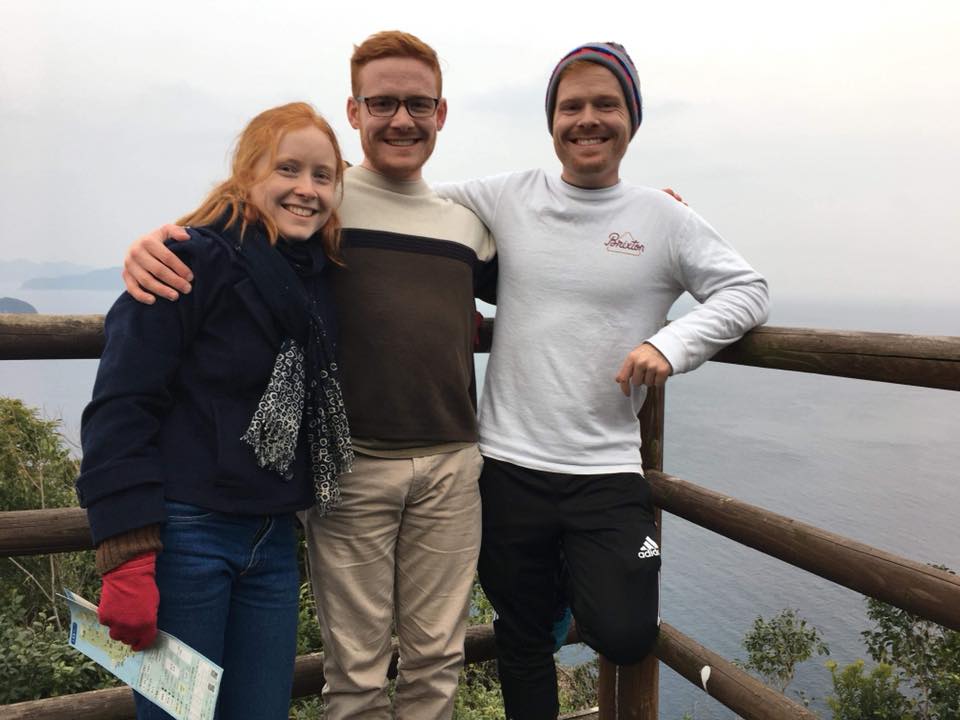I thoroughly enjoyed interacting with Ann throughout this process. She asked me for feedback as she prepared and planned, and she also asked me for prayer along the way. Her passion to reach her Christian peers re-ignited the similar passion I felt in college, and it was an honor to support her by leading the workshop event for her.
The three-hour workshop we planned together took place last month. It was translated by a professor on campus because many attendees were not fluent in English. A total of 19 students, faculty, and staff members attended, hailing from Japan, America, Nepal, the Philippines, Indonesia, Uganda, and Canada. I first shared about the inhumanity of abortion, and, with a warning, showed images of the results of abortion. I emphasized the need to share the graphic truth about abortion because I knew that many in Japan have probably never seen graphic abortion images before; additionally, because Ann had interviewed a large portion of her community, I knew that many of the participants were likely on the fence about abortion in certain cases. Because several of those interviewed had mentioned rape as a case in which abortion may be acceptable, I also took time later in the workshop to address that circumstance in particular. Participants were even able to go through practice dialogue activities in pairs, thanks to the efforts of several people Ann had recruited for translation. Finally, I ended the workshop by emphasizing our Christian duty to “rescue those who are being taken away to death,” rather than remaining silent in the face of such injustice (Proverbs 24:11-12).
I was encouraged by the participants’ interest in the topic. One professor wrote on her comment card:
“This was my first time attending a training that addresses abortion in particular, so it was a good opportunity. Humans developing from the inside, unlike the parts of a car [being put together piece by piece from the outside]. I thought this is very important in thinking about life.” (See our “Extending Your Learning - Biology” page for more on this topic.)
Ann wrote to the JFA team to tell us about the outreach event she had held the day after the workshop. None of the participants ended up joining Ann for the outreach, but Ann decided to be an active example to her peers anyway. She started conversations with fellow students by herself, alongside her handmade JFA-style display showing images of the unborn at different stages before and after abortion. One of her conversations was with a student who had participated in the workshop. He said that during his time in America, he had heard politicians promoting the pro-choice position. Then he said, “Before the training yesterday I had always thought pro-choice was a good thing.” The workshop had opened his eyes to look past pro-choice rhetoric and take a hard look at the inhumanity of abortion. (Ann had another fascinating interaction about the word “human” in Japanese. Read about it in the blog post “Are We Talking about the Same Thing?”)
I was amazed at what Ann was able to accomplish through her project. Ann’s willingness to go to such lengths to raise the topic of abortion with her peers in Japan reminded me that every event we put on here in the States – every presentation, workshop, seminar, and outreach event – has the potential to spark an interest in someone like Ann, someone who can take that passion with her to places where JFA will never step foot.
This is how JFA’s work is designed. Our team is not here to take on the huge task of changing public opinion on our own. We are here to equip Ann, and to equip you, to become a different kind of advocate, having a different kind of conversation, with people we will never meet. Only together, and only with God’s help, can we create a different kind of world for the smallest humans among us.
Ann’s experience with her Christian peers was similar to mine, and, we think, similar to the state of affairs in many Christian colleges, churches, schools, and ministries. When we ask people within our Christian communities specific questions about what they believe on abortion, we find that they often hold pro-choice views. We are here to equip you, like Ann, to reach your community. You don’t necessarily need to go to a secular campus or have many non-Christian friends in order to make a difference. If you are wondering with whom you could possibly create a conversation about abortion, I have one simple suggestion: perhaps your church pew is the best place to start.







